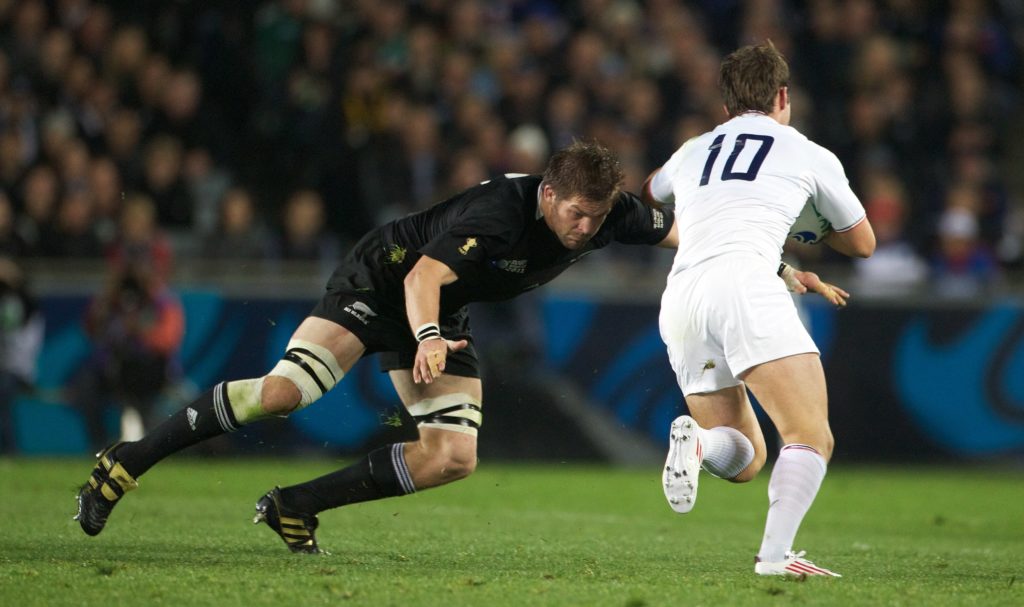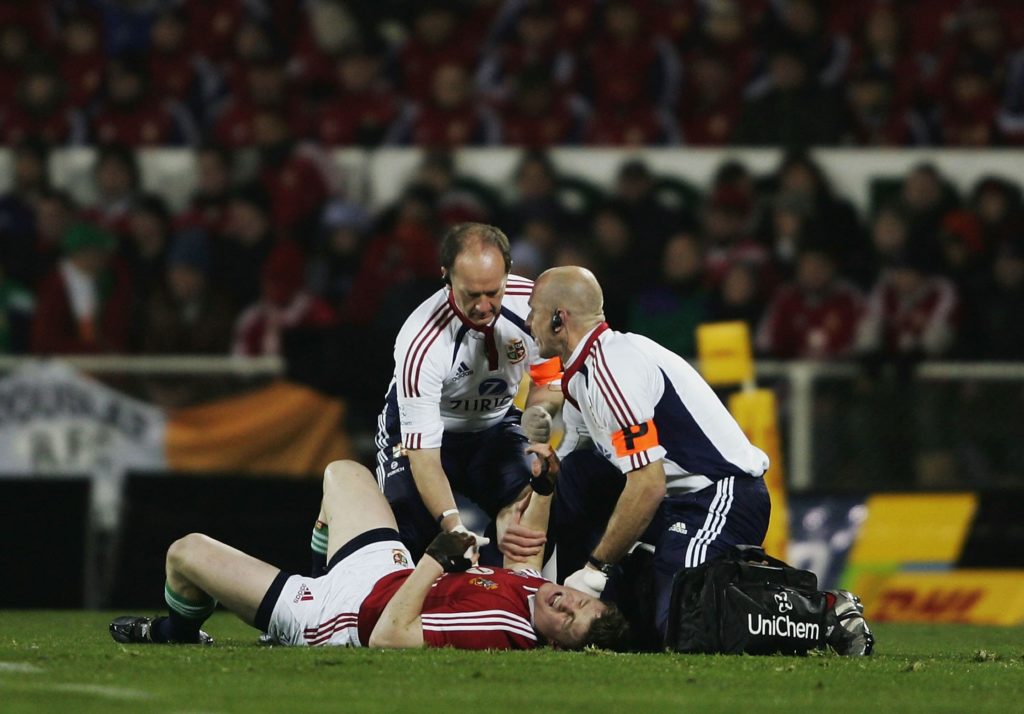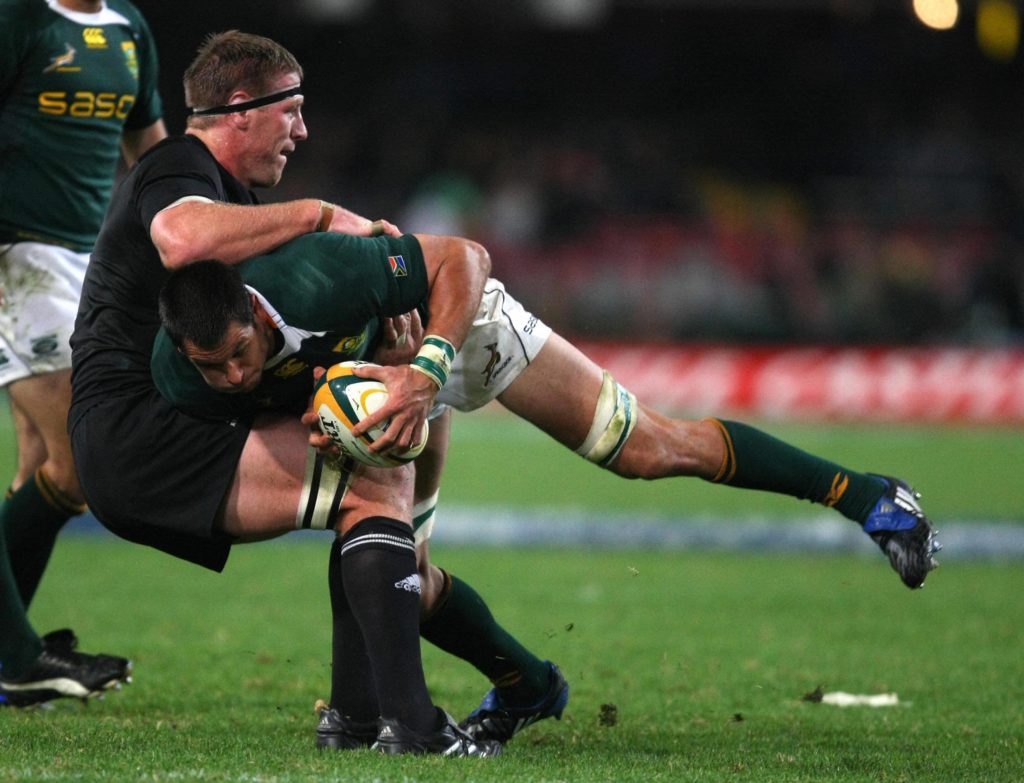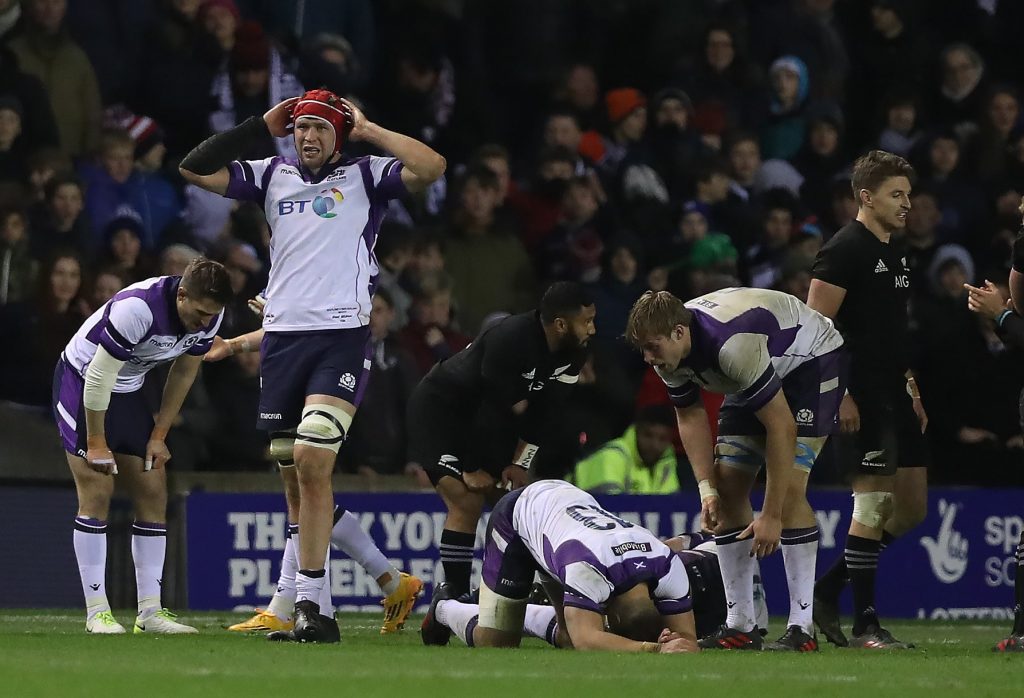In November, Gregor Paul released a new book called The Captain’s Run, exploring what it takes to lead the All Blacks. He has written a four part series for the XV exploring the qualities the best captains have shared, while also looking into the stories of those who didn’t succeed in the role. Part Four asks whether All Blacks captains live a charmed life where they can get away with whatever they want on the field.
The French, in maybe the way that only the French can, feel aggrieved to this day about the way the 2011 World Cup final was refereed.
Even now, almost 10 years since the All Blacks won 8-7 at Eden Park in a repeat of the 1987 final, at least half the nation if not more say that referee Craig Joubert let Richie McCaw do what he wanted that night.
The theory goes that McCaw, accused of being a borderline player in regard to the rules throughout his career, was given a free pass by Joubert – that he was able to come in at the side of rucks, flop off his feet, use his hands however he liked and somehow have immunity.
Worse, the French still believe he deliberately kneed Morgan Parra in the head midway through the first half – a collision which saw the French play-maker forced off with concussion.
The French were so incensed by McCaw’s ability to do what he wanted when he wanted that in the final minutes, centre Aurelien Rougerie snapped, dived into a breakdown and plunged his fingers into the All Blacks captain’s eyes.

It was an act of total frustration and when the game was over, the commentary from the French players confirmed just how unimpressed they had been.
Hooker Dimitri Szarzewski, said: “[Jerome] Kaino committed a lot of fouls, [Richie] McCaw doing what he wanted and they were not penalised. Unless the fault was really rough, they were not punished.
“Mr. Joubert was not brave. It was a World Cup final. I wanted things to be fair. And that was not the case.”
This idea that the All Blacks are able to play to a different set of rules has been around for an age. Their success over such a long period has brewed resentment and be it in Bristol, Brive or Brisbane, there will be rugby followers adamant that the reputation of the All Blacks is such that they intimidate referees and earn favourable outcomes on the strength of who they are and what they have achieved.
Mr. Joubert was not brave. It was a World Cup final. I wanted things to be fair. And that was not the case.
France hooker Dimitri Szarzewski following the 2011 World Cup final
In 2009, after seeing Wales lose 19-12 at the Millennium Stadium to the All Blacks, Warren Gatland made this very point. He was incensed that Dan Carter had not been penalised for a high tackle with 10 minutes remaining and suggested that referees were scared of making decisions that would result in an upset against the All Blacks.
In much the same vein, Springboks coach Rassie Erasmus said the All Blacks had enjoyed a decade of good refereeing fortune between 2009 and 2019 on the back of their continued excellence.
He was speaking ahead of the Springboks opening World Cup clash against the All Blacks last year and while it was a patent attempt to put pressure on the match referee Jerome Garces, he did seem to mean what he said. “It was a well-known fact that when it was really tough and teams were under the pump some of the 50-50 decisions just went New Zealand’s way because they deserved that for being number one so long.”
And the All Blacks captain lives a particularly charmed life as there are those who believe they have been able to exploit this blindspot: play on the edge of legality, or perhaps even beyond, gambling that they hold such an esteemed place in the game, that they will get away with it.
This idea is laughed away in New Zealand but there are unexplained moments in New Zealand’s history – decisions that were made, or not made, that were particularly difficult to understand and certainly support the idea that there have been times the All Blacks captain has avoided prosecution.
For British fans the most memorable time of all this happened was in 2005 when Tana Umaga was neither carded nor cited for his role in tipping Lions captain Brian O’Driscoll on his head in the first minute of the first test.

Those who remain adamant it’s pure fantasy – the stuff of wild conspiracies – that All Blacks captains are occasionally granted licence to operate outside the law should think about this.
In 2005 Umaga tip-tackled O’Driscoll out of the Lions series and was not punished either at the time or by the citing commissioner.
The incident was off the ball which explains why the referee missed it, but the cameras caught it clearly enough and it hardly seemed a difficult decision for the citing commissioner to make.
And yet he didn’t – but somehow managed to find evidence of Danny Grewcock biting Keven Mealamu’s finger at the bottom of a different ruck.
This idea is laughed away in New Zealand but there are unexplained moments in New Zealand’s history – decisions that were made, or not made, that were particularly difficult to understand and certainly support the idea that there have been times the All Blacks captain has avoided prosecution.
By way of comparison to allude to this imbalanced world in which All Blacks captains live, in 2011 Wales captain Sam Warburton tip-tackled French wing Vincent Clerc 17 minutes into the World Cup semi-final at Eden Park and was red carded.
The two incidents were almost identical, both happened in huge games and yet the All Blacks captain was exonerated and the captain of Wales sent off in disgrace.
There was a similar injustice in 2008 when Brad Thorn picked up John Smit and dumped him on his head. It was a dangerous spear tackle, sparked a massive brawl and inflicted a groin injury on the South African captain that forced him out of the next test.
It looked like a red card offence, but it was ruled a penalty only by the officials, with Thorn subsequently being cited after the game and banned for a week. “Just imagine [Springboks lock] Bakkies Botha doing something similar to Richie McCaw,” Smit fumed when he arrived back in South Africa. “World rugby would have come to a standstill.”

If Smit was mad in 2008, it paled in comparison with how angry the Scots were in 2017 when Kieran Read managed to illegally stop what was a near certain try.
The Scots were chasing an historic victory at Murrayfield and for the first time in decades, they were competing as an equal with the All Blacks, putting them under pressure and looking capable of actually doing it.
The All Blacks led 22-10 with eight minutes left, but were obviously tiring having played 10 minutes earlier in the half with 14 men following a yellow card to Wyatt Crockett. The Scots were proving hard to subdue and after a prolonged spell in the All Blacks’ 22 they won a penalty advantage five metres out.
Jonny Gray picked up and was advancing towards the tryline when Read, still lying on the ground after making a tackle, illegally slapped the ball out of the Scottish lock’s hands. It was a cynical, professional foul and automatic yellow card. Except somehow the English referee Matthew Carley missed it.
If Smit was mad in 2008, it paled in comparison with how angry the Scots were in 2017 when Kieran Read managed to illegally stop what was a near certain try.
All the video replays suggest Carley was staring right at the incident and was barely two metres from it. Did he really not see it? Or did he simply not fancy the idea of yellow-carding the All Blacks captain when the game was still in the balance just as Gatland had suggested eight years earlier?
Scotland assistant coach Dan McFarland knew how he felt about it: “That was just cynical wasn’t it? It should have been a yellow card, quite possibly a try, and quite possibly a penalty try.
“I can see that [all those options] would be something for discussion, but that’s not up for discussion now is it? That’s how they play. They’re very streetwise, they’re very clever.”

And this magical ride was not just something McCaw and Read enjoyed. Sean Fitzpatrick enraged almost everyone he played against between 1993 and 1997 such was his ability to seemingly play beyond the rules and get away with it. He loved crawling on the side of the ruck, lazy running and lingering in all the wrong places.
Not only was he brilliant at it, but he had an amazing rapport with referees and ability to almost use Jedi mind tricks to persuade them he was onside and minding his own business.
“It was a philosophy really,” says Fitzpatrick about his management of referees. “If he likes you, a 50:50 call…it’s going to go either way, especially in those days. But yeah I made a conscious effort, I’d always have a beer with the referee after a game, and I wanted to know the laws I suppose.
“So very similar to Richie, if you know the rules as well as the referee, you’re not going to get caught out, they respect you. And yeah, it was probably also about annoying the other players, the other captain.”



Comments
Join free and tell us what you really think!
Sign up for free